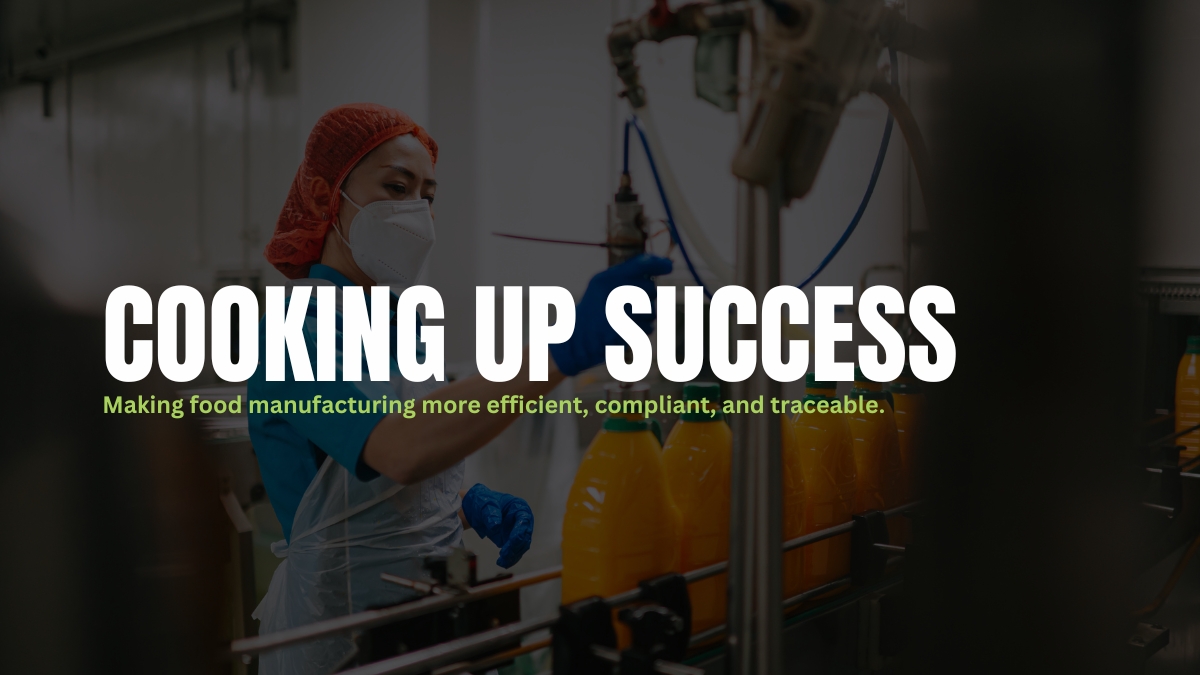Roles of an ERP in food manufacturing industry
An Enterprise Resource Planning (ERP) system is essential for streamlining and improving numerous business operations in the food manufacturing sector. ERP software connects and controls various facets of the food manufacturing process, from production and distribution to sales and procurement.
Key roles of an ERP in food manufacturing industry:
- Inventory Management: An ERP system can track the supply chain, monitoring raw materials in the factory. Additionally, it can also track the ingredients and final goods within the factory. Moreover, to meet production goals and reduce waste, it ensures the timely availability of the required ingredients. This systematic process includes keeping tabs on the stock that is about to expire and identifying historically unprofitable items.
- Production Planning And Scheduling: ERP software helps in the creation of production schedules and plans based on resource availability. Additionally, it considers inventory levels and demand projections. Furthermore, it improves overall efficiency, reduces lead times, and optimizes production processes.
- Quality Control And Compliance: By integrating quality control procedures throughout the production cycle, ERP systems in the food industry assist maintain quality standards. They make it easier to follow guidelines and certifications relating to food safety. These include Good Manufacturing Practices (GMP) and Hazard Analysis and Critical Control Points (HACCP).
- Traceability and lot tracking: To guarantee product safety in the food business, traceability is essential. In addition, ERP systems make it possible to follow raw materials and completed products all the way through the supply chain, making it simpler to pinpoint the origin of any quality problems or recalls.
- Recipe Management: ERP software enables food makers to organize and keep track of recipes for various products. Additionally, it guarantees reproducible, precise ingredient measurements and offers simple batch variation corrections.
- Cost Control And Financial Management: ERPs assist in budgeting and cost control since they have integrated financial components. Furthermore, they provide firms with information on production costs, raw material costs, labour costs, and other overheads, thereby assisting them in making decisions that will increase profitability.
- Sales And Distribution Management: ERP systems handle order processing, billing, and sales management in food manufacturing industries. They provide client satisfaction by facilitating effective order fulfilment and prompt delivery.
- Supplier Management: ERP software helps to manage interactions with suppliers, monitor their performance, and keep open communication. It facilitates negotiating better rates and guarantees a consistent supply of raw materials.
- Real-Time Reporting And Analytics: Decision-makers are given insights into numerous facets of the food manufacturing process through real-time data and thorough analytics provided by ERP systems. They can use this information to decide what needs to be improved upon and to identify those areas.
- Regulatory compliance: In the highly regulated food industry, ERPs help businesses stay compliant with various government regulations, industry standards, and labelling requirements.
How does Quarto ERP enhance efficiency in food manufacturing industry
Quarto ERP software is essential in optimizing food manufacturing efficiency, compliance, and traceability across the whole supply chain. With capabilities such as real-time visibility, inventory management, and quality control, it enables food manufacturers to increase productivity, cut costs, and provide high-quality products in order to satisfy the industry’s ever-changing expectations. Our ERP solution, by using the power of technology, sets the goal for long-term growth and competitive advantage in the fast-paced world of food processing.
Ready to enhance your food manufacturing operations? Contact us today to harness the power of Quarto ERP software and set the goal for long-term growth and competitive advantage in the fast-paced world of food processing.





